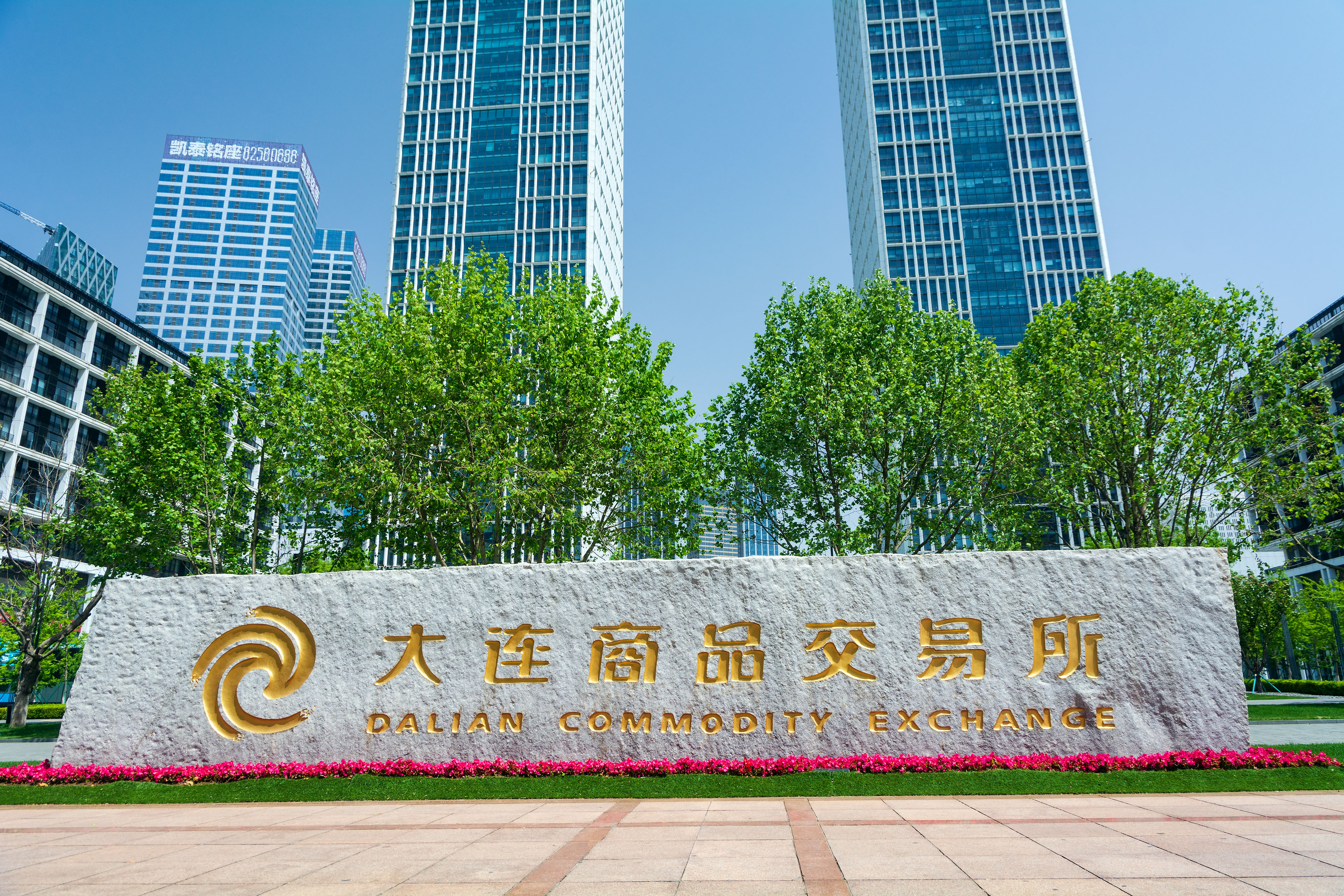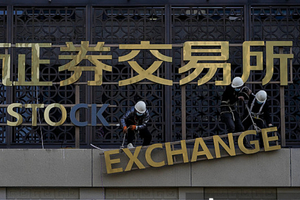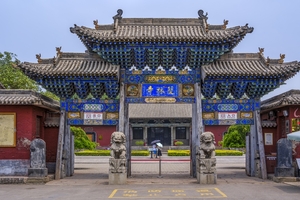In Depth: China’s Tightening Rules Put Foreign High-Frequency Futures Traders in Limbo
Listen to the full version

High-frequency futures traders in China have seen the viability of algorithmic strategies come under pressure as costs have ballooned.
Some were set up as goods trade companies by big-name foreign firms to evade restrictions on overseas investment in the country’s commodities futures market, and have operated in a regulatory gray area for years.
They earned huge returns with advanced algorithms that enable them to execute vast numbers of transactions in the blink of an eye.

Download our app to receive breaking news alerts and read the news on the go.
Get our weekly free Must-Read newsletter.
- DIGEST HUB
- High-frequency futures trading in China by foreign firms faces rising costs and stricter regulations, making strategies less profitable.
- New rules disqualify these traders from commission rebates and impose additional fees, leading to some firms considering relocating to other markets like India.
- Attempts by foreign traders to register as private fund managers in China have largely failed, further complicating their compliance and operational strategies.
High-frequency futures traders in China are encountering growing challenges due to increasing costs that threaten the viability of their algorithmic strategies [para. 1]. Some traders were established by notable foreign firms as goods trade companies to bypass restrictions on foreign investment in the commodities futures market, operating in a regulatory gray area [para. 2]. These firms have made significant profits through sophisticated algorithms capable of executing vast transactions quickly, with approximately 5 billion yuan ($725 million) in profits generated in 2019, and 60% attributed to foreign firms [para. 4]. However, the low-cost conditions that facilitated these profits are now diminishing [para. 5].
Recent policies disqualify high-frequency traders from receiving commission rebates and permit futures exchanges to impose additional fees based on order submissions and cancellations [para. 6]. As a result, trading costs have soared, undermining the edge of high-frequency strategies, prompting some firms to consider layoffs [para. 7]. In an effort to solidify their regulatory standing, some foreign traders attempted to register as investment fund managers in China, but many have failed [para. 8].
Futures exchanges implemented new commission rebate rules earlier in the year, removing rebates for trades executed through computer programs, which has directly impacted high-frequency traders who previously benefited from such rebates [para. 10][para. 11]. These traders' strategies, involving frequent order submissions and cancellations, are highly sensitive to changes in transaction fees [para. 12]. Consequently, some transaction costs have surged tenfold [para. 13], causing many traders to abandon their strategies in China [para. 14].
Although leading institutions can still generate profits, they face significantly reduced returns, and mid-sized traders may exit the market entirely [para. 15]. High operational costs may push some firms to seek high-frequency trading opportunities elsewhere, like in India [para. 16]. Previous regulatory moves, such as additional fees on excessive order submissions and daily trading limits, have already weakened high-frequency trading profitability in China [para. 17][para. 18]. While these measures may reduce overall trading volume, industry insiders believe they will eventually stabilize the market by eliminating firms overly reliant on high-frequency trading clients [para. 19].
To legally invest in China's futures market, foreign institutions must trade approved commodity contracts or qualify as a Qualified Foreign Institutional Investor (QFII) [para. 21]. Some traders circumvent these requirements by setting up goods trading companies, like Yue Shen Industrial, which is controlled by Jump Trading Group, conducting substantial financial market transactions under the guise of goods trading [para. 25]. Yue Shen reported significant investment income with minimal tax contributions due to tax rebates and avoiding Value-Added Tax (VAT) [para. 28].
Authorities have scrutinized Yue Shen's tax practices, revealing that transferring investment profits overseas as royalty payments reduces China's corporate income tax revenue, even though the practice technically complies with regulations [para. 29]. Further complicating matters, other investors accuse high-frequency traders of inflating trading volumes without enhancing market liquidity due to frequent order cancellations [para. 31].
Under regulatory pressure, some foreign high-frequency traders have tried transforming into private investment fund management companies [para. 34]. However, these attempts have mostly failed due to insufficient compliance with fundraising requirements [para. 35][para. 39]. For instance, Optiver Private Fund Management's registration was revoked for not registering any fund products within the required timeframe, despite its attempt to launch a product funded by its parent company [para. 36][para. 37]. Similarly, applications by firms backed by Jump Trading and Hudson River Trading were terminated [para. 42].
Foreign traders attempting to comply face regulatory uncertainties, with some shifting focus to spot trading to align with regulations. However, there is ongoing concern about potential future regulatory changes that may retroactively impact past transactions [para. 45].
Reporter Zhang Yukun, along with editors Lin Jinbing and Joshua Dummer, can be contacted for further details [para. 47].
- Yue Shen Industrial (Shanghai) Co. Ltd.
- Yue Shen Industrial (Shanghai) Co. Ltd., controlled by Jump Trading Group, operates as a trade company but primarily engages in financial market transactions. It reported significant investment income in 2020 and 2021 while paying minimal corporate income tax and zero VAT, raising regulatory concerns. The company is an active trader on the Dalian Commodity Exchange, and its practices highlight potential tax and regulatory issues in China's high-frequency trading sector.
- Jump Trading Group
- Jump Trading Group operates Yue Shen Industrial (Shanghai) Co. Ltd., which is involved in high-frequency trading in China. Yue Shen is a prominent trader on the Dalian Commodity Exchange. The firm faced scrutiny for paying minimal taxes on substantial investment returns and for practices like transferring profits overseas via royalty payments, raising concerns about their tax compliance and regulatory adherence.
- Optiver (Shanghai) Trading Co. Ltd.
- Optiver (Shanghai) Trading Co. Ltd. is a high-frequency trader operating under the guise of trading physical goods. Founded in 2012, it paid 109 million yuan in commissions to Haitong Futures in 2015, constituting about 5% of Haitong's revenue from futures brokerage commissions that year. Optiver (Shanghai)'s attempt to register a private fund manager in China failed, as it didn't meet the regulatory requirement for external fundraising.
- Optiver Private Fund Management (Shanghai) Co. Ltd.
- Optiver Private Fund Management (Shanghai) Co. Ltd. was registered as a private fund manager with the Asset Management Association of China (AMAC) in 2021. However, its registration was revoked after about 18 months because it failed to register any fund products within the required timeframe. The firm was associated with Dutch high-frequency trader Optiver and attempted to continue proprietary trading under the guise of managing external funds.
- Hudson River Trading
- Hudson River Trading is a U.S.-based quantitative trading firm involved in high-frequency trading. The article mentions that a firm backed by Hudson River Trading applied to register with the Asset Management Association of China (AMAC) as a private fund manager, but the application was terminated in November. Reasons for this termination were not disclosed, but industry sources speculate it might relate to Optiver's earlier failure to launch compliant products.
- PODCAST
- MOST POPULAR






 Sign in with Google
Sign in with Google
 Sign in with Facebook
Sign in with Facebook
 Sign in with 财新
Sign in with 财新